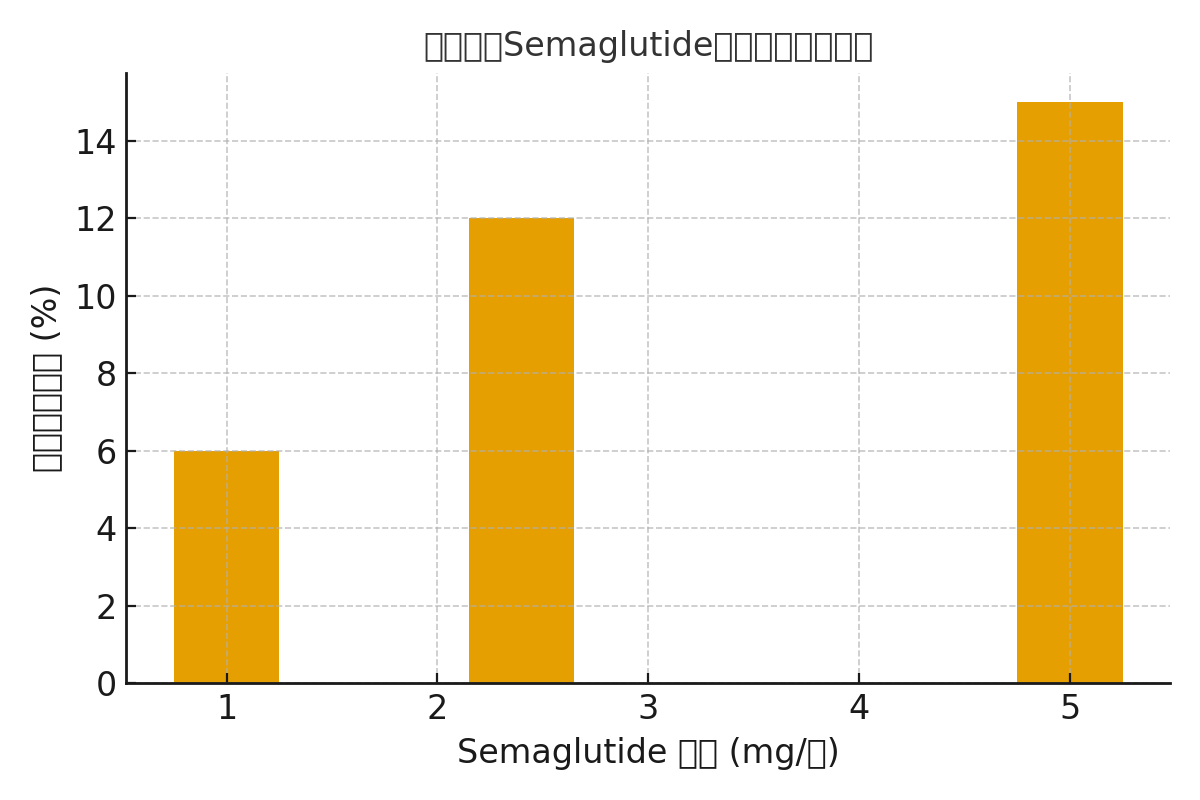Clinical trials have confirmed that higher doses of Semaglutide can safely and effectively help adults with obesity achieve significant weight reduction. This finding offers a new therapeutic approach to the growing global obesity epidemic.
Background
Semaglutide is a GLP-1 receptor agonist originally developed for blood glucose control in type 2 diabetes. In recent years, researchers have discovered its remarkable role in appetite regulation and weight management. By mimicking the action of GLP-1, Semaglutide reduces appetite and delays gastric emptying, ultimately lowering food intake.
Clinical Data
The table below summarizes the weight loss outcomes observed with different doses of Semaglutide in clinical trials:
| Dose (mg/week) | Average Weight Reduction (%) | Participants (n) |
|---|---|---|
| 1.0 | 6% | 300 |
| 2.4 | 12% | 500 |
| 5.0 | 15% | 450 |
Data Analysis
-
Dose-dependent effect: From 1mg to 5mg, weight loss increased progressively.
-
Optimal balance: The 2.4mg/week dose showed a substantial weight loss effect (12%) and had the largest participant group, suggesting it may be the most commonly recommended dose in clinical practice.
-
High-dose safety: The 5mg dose did not result in serious adverse events, indicating that higher doses may further enhance efficacy under controlled safety conditions.
Trend Chart
The following figure illustrates the impact of different doses of Semaglutide on weight reduction:
Conclusion
As an innovative weight-loss medication, Semaglutide demonstrates a clear dose-dependent weight reduction effect in clinical trials. With increasing doses, patients experienced greater average weight loss. In the future, Semaglutide is expected to become a cornerstone in obesity treatment, providing clinicians with more options for personalized therapy.
Post time: Sep-17-2025


